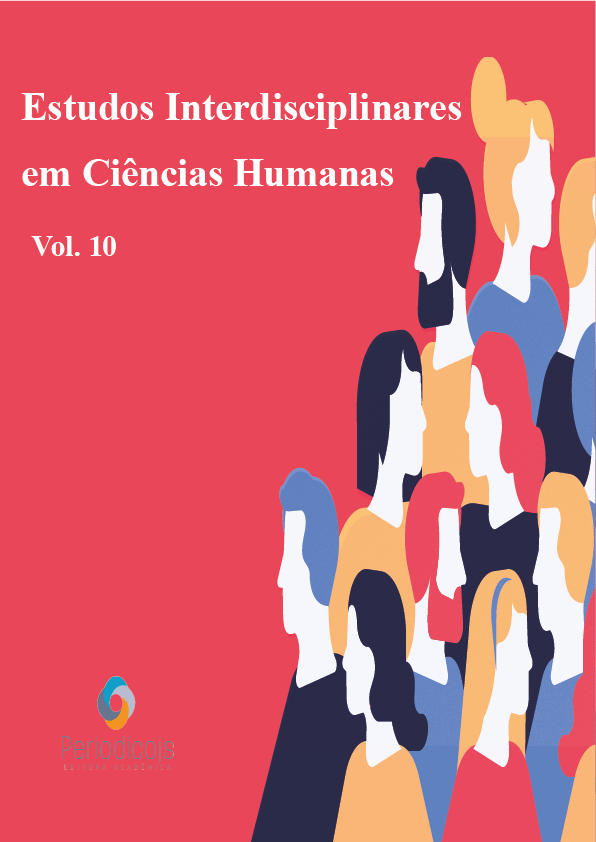Abstract
This article intends to discuss about the contribution of the didactics in the formation of the teacher’s identity, thus, it aims to show the formation of the teacher and the influence brought by the Didactics to his professional life, allowing that the teacher build his professional identity through the valorization of the educating as a social being. In addition, it intent to show the need of a reflection on the constitution of the teacher as a professional and the links between formation and construction of the identity. This study is justified by the importance of the teaching professional in society and in the educational background of the students. The union between theory and practice (praxis) is essential for teaching to occur properly, making the student obtain, in fact, a quality education based on the integral training of their educators, showing that they are inseparable issues in this moment. With that, it became necessary to revise the training curricula of the teachers in order to guarantee an overcoming of the old concepts of the Didactics and methodology, adopting new mechanisms capable of printing changes in society and in the subjects. Didactics are fundamental for teachers to connect theory and practice and, between this, to may impose the real social transformations through education. To this end, was used the methodology of bibliographic research, seeking to elaborate an analytical framework so that it was possible to obtain an understanding of the importance of praxis for the teacher’s life and for social transformations.
References
AGUIAR, W.M.J. Consciência e Atividade: categorias fundamentais da psicologia sóciohistórica. In: BOCK, Ana Mercês Bahia (org). Psicologia Sócio-Histórica – uma perspectiva crítica em psicologia. São Paulo: Cortez, 2001.
ARANHA, M.L.A. Trabalhar pra quê? In: KUPSTAS, Márcia (org). Trabalho em Debate. 1ª ed. São Paulo: 1997.
ARAÚJO, P.L.; YOSHIDA, S. M. P. F. Professor: Desafios da prática pedagógica na atualidade. Disponível em: < http://www.ice.edu.br/TNX/storage/webdisco/2009/11/03/outros/608f3503025bdeb70200a86b2b89185a.pdf>. Acesso em: 10 fev. 2020.
BARBOSA, F.A.S.; FREITAS, F.J.C. A didática e sua contribuição no processo de formação do professor. Disponível em: <https://fapb.edu.br/wp-content/uploads/sites/13/2018/02/especial/3.pdf>. Acesso em: 06 fev. 2020.
BERNARDETE. A. G. Formação de Professores no Brasil: Características e Problemas. Disponível em: <http://www.scielo.br/pdf/es/v31n113/16.pdf>. Acesso em 28 jan. 2020.
BRAGAGNOLO, R. I. B.; LUNA, I. N. Educação e novas exigências profissionais: Novas exigências à prática docente e constituição da identidade profissional de educadores de 1ª à 4ª série. Disponível em: < http://27reuniao.anped.org.br/gt08/t0815.pdf>. Acesso em: 06 fev. 2020.
BRASIL. Lei nº 9394 de 20 de dezembro de 1996. Lei de Diretrizes e Bases da Educação Nacional, Brasília: MEC, 1996.
COMENIUS. Didática Magna. São Paulo: Martins Fontes, 1997. (Original publicado em1631).
FREIRE, P. Pedagogia da autonomia: saberes necessários à prática educativa. Rio de Janeiro: Paz e Terra, 1996.
FREITAS, L. C. Mudanças e inovações na educação. 2. ed. São Paulo: EDICON, 2005
GATTI, B. Formação continuada de professores: a questão psicossocial. Cadernos de Pesquisa, n. 119, p. 191-204, jul.2003.
______. Formação de professores no Brasil: características e problemas. Educ. Soc., Campinas, SP, v. 31, n. 113, p. 1355-1379, 2010
GOMES, S.S. Didática, práticas docentes e o uso das tecnologias no ensino superior: saberes em construção. Disponível em: <http://37reuniao.anped.org.br/wp-content/uploads/2015/02/Trabalho-GT04-3905.pdf>. Acesso em: 02 fev. 2020.
LIBÂNEO, J.C. Adeus professor, adeus professora? novas exigências educacionais e profissão docente. 5. ed. São Paulo: Cortez, 2001.
______. Didática. São Paulo: Cortez, 1990.
______. Organização e gestão da escola: teoria e prática. 5. ed. revista e ampliada. Goiânia: Editora Alternativa, 2004.
MEDEIROS, M.V. CABRAL, C.L.O. Formação docente: da teoria à prática, em uma abordagem sócio-histórica. Disponível em: < https://revistas.pucsp.br/index.php/curriculum/article/viewFile/3122/2060>. Acesso em: 02 fev. 2020.
NÓVOA, A. Vidas de professores. Trad. Maria dos Anjos Caseiro e Manuel Figueiredo Ferreira. Portugal: Porto Editora, 1992.
PAULA, G.M. Pós conselho: Das Metas aos Atos. Disponível em: < http://www.diaadiaeducacao.pr.gov.br/portals/cadernospde/pdebusca/producoes_pde/2016/2016_pdp_gestao_unioeste_gilmarmarcelodepaula.pdf>. Acesso em: 09 fev. 2020.
PIMENTA, S.G.; GHEDIN, E. (Orgs.). Professor reflexivo no Brasil: gênese e crítica de um conceito. 3. ed. São Paulo: Cortez, 2005.
PIMENTA, S.G. Formação de professores: saberes da docência e identidade do professor. Revista da Faculdade de Educação, USP, v. 1. n. 1, p.72-89, jul/dez.1996.
________. O estágio na formação de professores: unidade teórica e prática? 3. ed. São Paulo: Cortez, 2005.
SILVA, V.L. Por detrás das palavras. Investigando aspectos e valores da identidade social e profissional de professores de 1ª à 4ª série. Florianópolis, UFSC: 1993. Dissertação de mestrado da educação.
TAVARES, C. Z. Formação em avaliação: a formação de docentes no enfrentamento de um processo de avaliação a serviço da aprendizagem. Disponível em: < http://www.educadores.diaadia.pr.gov.br/arquivos/File/2010/artigos_teses/2010/Pedagogia/tform_av_aprendizagem.pdf> Acesso em: 06 fev. 2020.
TAVARES, L.N. Um olhar psicopedagógico para os cursos de formação de professores diante das dificuldades de aprendizagem no ensino fundamental do 1º ao 5º ano. Mogi das Cruzes, São Paulo: Psicopedagogia, UBC. 2013.
VEIGA, I. P. A. A prática pedagógica do professor de didática. Disponível em: . Acesso em: 22 jan. 2020.
______. Passos Alencastro. Didática: uma retrospectiva histórica. In: LOPES, Antonia Osima; VEIGA, Ilma Passos Alencastro (Colab.). Repensando a didática. 26. ed. rev. e atual. Campinas: Papirus, 2004.
______. Didática: uma retrospectiva histórica. Disponível em: < https://ria.ufrn.br/jspui/handle/1/265> Acesso em: 22 jan. 2020.
VIGOTSKY, L.S. Pensamento e Linguagem. São Pulo, Martins Fontes, 1996.
VYGOTSKY; L. S.; LURIA R. A história do comportamento: o macaco, o primitivo e a criança. Porto Alegre: Artes Médica, 1996.
ZABALA, A. A prática educativa: como ensinar. trad. Ernani F. da F. Rosa. Porto Alegre: ArtMed, 1998.
ZICK, G. S. N.; LOSS, A. S. A didática sob a ótica dos professores do ensino fundamental I. Disponível em: <https://educere.bruc.com.br/arquivo/pdf2017/24791_12091.pdf>. Acesso em: 02 fev. 2020.





